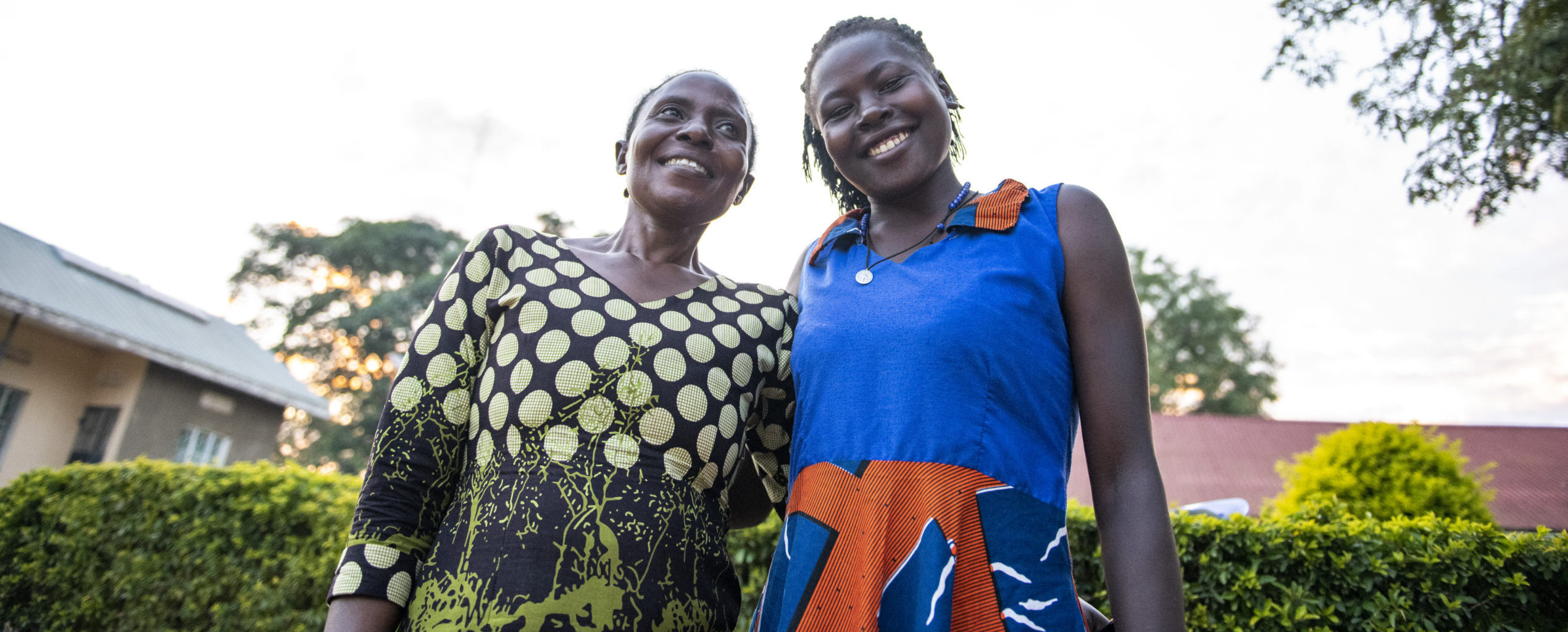COVID-19 has rapidly changed the routines of frontline health workers around the world. This is the story of an HIV counselor working in southwest Uganda.
 Eunice Kabagambe works as a counselor at Kambuga Hospital, where she supports HIV services. Eunice is not a novice in the fight against pandemics; she has been living with HIV for 20 years and has raised 15 children orphaned by the HIV pandemic. In 2017, Eunice was recognized as a PEPFAR hero for her work in the community to treat and prevent HIV.
Eunice Kabagambe works as a counselor at Kambuga Hospital, where she supports HIV services. Eunice is not a novice in the fight against pandemics; she has been living with HIV for 20 years and has raised 15 children orphaned by the HIV pandemic. In 2017, Eunice was recognized as a PEPFAR hero for her work in the community to treat and prevent HIV.
Eunice and her colleagues were very concerned when they heard about COVID-19—for the community at large, but especially for her clients living with HIV.
“The hospital’s in-charge quickly brought the team together to discuss preventive steps and also provided the team with protective gear,” says Eunice. “We put in place standard procedures, including hand washing and social distancing. We shifted our counseling station out of the facility to an open area.”
On April 8, the Ugandan government imposed movement restrictions, halting travel by buses or boda bodas, the freelance motorcycle taxis that ferry people to crucial services. This means that many pregnant mothers and children would have to walk long distances to refill their prescriptions at health centers.

Eunice and her colleagues reviewed their client list and grouped antiretroviral drug refill dates so that clients can pick up for several months at one time, being mindful of social distancing. Clients who live far from the facility can ask a nearby expert client to pick up their drugs for them when the expert client comes to pick up her own drugs. For clients who fail to access the clinic, health workers arrange to have their drugs delivered in the community.
Eunice has her fingers crossed and hopes that there is no break in the supply chain for HIV and TB drugs.
“The expert clients have helped us in raising awareness about COVID-19 prevention and inform us about what people are saying in the community,” says Eunice. “Some people are worried about COVID-19. Others don’t believe it is real. So the expert clients educate their clients and neighbors, both by phone and from a safe physical distance when they are going home.”
This education is important because stigma has cropped up around COVID-19.
“We have had of people in the news with symptoms hiding themselves, and in some villages if they think you have symptoms they can even chase you,” says Eunice.
We are not afraid, because we are taking precautions.
“We are not afraid, because we are taking precautions,” Eunice says. “Before I leave the health facility I wash with soap, and I sanitize. Before I step into the [housing] compound we have water and soap to wash, and inside the house we do it again.” Eunice lets everyone passing by to do the same—shouting to them at the road from a safe distance.
“It’s hard, but we are continuing to sensitize our communities so that we all understand that this COVID-19 is an attack on the human race and is not a [rumor]. We have to change behavior together.”




